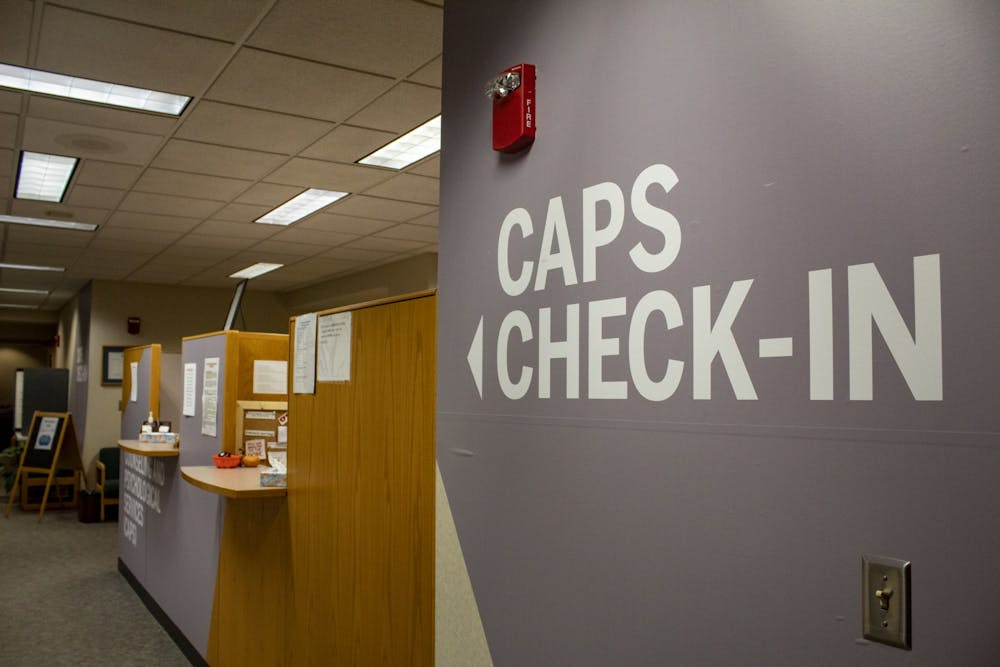To be or not to be.
A famous quote from Shakespeare’s coming-of-age play, Hamlet. In the story, a young man grieving the death of his father and experiencing the pains of life tries to decide if it's better to live or die.
On Dec. 26, 2019 — a day after Christmas, four days before taking his life and weeks before he was set to join the Georgia Tech football team — 17-year-old Bryce Gowdy tweeted that exact quote.
Stories like Gowdy's show why we should provide more mental health resources to black teens. The same goes for IU students.
Black children and teens are more likely to experience poverty and toxic stress associated with being financially unstable, according to the Economic Policy Institute. This creates an unavoidable childhood trauma that physically, mentally and emotionally harms these children as they grow into teenagers and young adults.
Gowdy’s tragic death serves as a reminder of just how detrimental these systemic inequalities are on black youth.
After struggling to find stable housing, the Gowdy family checked into a hotel Dec. 29. Shibbon Winelle said in a video posted to her Facebook page that her son was questioning his spirituality and life. He asked if his mother and brothers were going to be okay once he went off to school. She said both Gowdy and herself had “personal demons.”
This stress linked with poverty has a comprehensible effect on black youth.
In 2018, almost 1 in 6 childrenin the U.S. lived in poverty, according to Census Bureau data. The 2017 American Community Survey, a Census Bureau program, found the percentage of black children in poverty is twice as high as that of non-Hispanic white children. Suicide attempts have increased by 73% in black youth between 1991 and 2017.
Michael A. Lindsey, executive director of the McSilver Institute for Poverty Policy and Research at the New York University Silver School of Social Work, told HuffPost in an interview that racism and higher rates of poverty play key roles in this disturbing trend.
However, Lindsey said it is important to recognize black children might display depression and mental health struggles differently than their peers. Lindsay said physical complaints and interpersonal challenges are common signs.
“The kid who is depressed may not be the kid in the back of the class with their head down; it may be the kid who is irritable when you try and engage them, or explosive,” Lindsey said. “They may fight. Those kids tend to be suspended from school, particularly black kids,” he said.
A lack of access to mental health resources perpetuates this issue.
"Real men don’t cry." "Don’t be soft." Hyper-masculine ideassuch as these with harmful effects plague black communities. Some black people might think receiving help might make them appear weak, vulnerable or not a true man.
There is also a clear financial strain, especially if a person is in poverty. Without health insurance, a typical therapy session can cost between $75 and $150, according to financial planning company Northwestern Mutual. When the next stable meal or safe place to sleep is in question, a therapy session will be placed last on a to do list.
While IU has mental health services for students, more can be done to assure mental health crises are not an issue on campus.
If a student has paid a health fee, they receive two free counseling visits at IU's Counseling and Psychological Services, according to the CAPS website. Students automatically pay the fee if they are enrolled in more than 3 credit hours for the fall or spring semesters.
A few years ago, I went to CAPS for the first time. After my appointment in November, CAPS said they could schedule me again — but not until the following January.
I couldn’t help but wonder how a struggling student on the verge of taking drastic measures would feel hearing that information — the most cost-effective therapy available to them would simply not be available for almost two months.
According to previous reporting from the Indiana Daily Student, many other students have experienced long wait times, too. Hiring additional counselors could help.
The Metz Carillon Bell Tower renovations in 2019 cost $7 million. Memorial Stadium renovations were $53 million. One could argue these attractions bring money to the university. If so, shouldn’t more of that money be allocated to mental health resources?
IU junior Liya Ghiday has performed research on the classification and treatment of affective disorders, with a focus on racial and ethnic identity in black adolescents. She is a psychology major with a minor in human development and family studies.
Ghiday believes East Africans and people of the African Diaspora in general don't value the importance of mental health.
“People say ‘Just pray about it,’ ‘It’s not a big deal,’ ‘You have a lot to be happy about,’” Ghiday said. “'You have everything—why are you sad?'”
She believes change must start in the home by educating yourself and loved ones on the importance of mental health in order to create a more comfortable environment to continue those conversations.
“People need to get rid of their pride and ego,” Ghiday said.
Ghiday believes black people in general are going through a lot on campus, specifically with IU being a predominantly white institution. She believes black mental health on IU’s campus could be improved by locating full-time CAPS counselors in the Neal-Marshall Black Culture Center.
Hopefully such a measure would prevent more deaths of young black people.
To be or not to be.
It's an unfortunate question a concering amount of minority adolescents face.
With proper education and resources, more youth might answer that seemingly basic question of countless complexities with two simple words.
“To be.”
Jaclyn Ferguson (she/her) is a junior studying journalism and African American studies. She plans to pursue a career advocating for the underrepresented through journalism.






